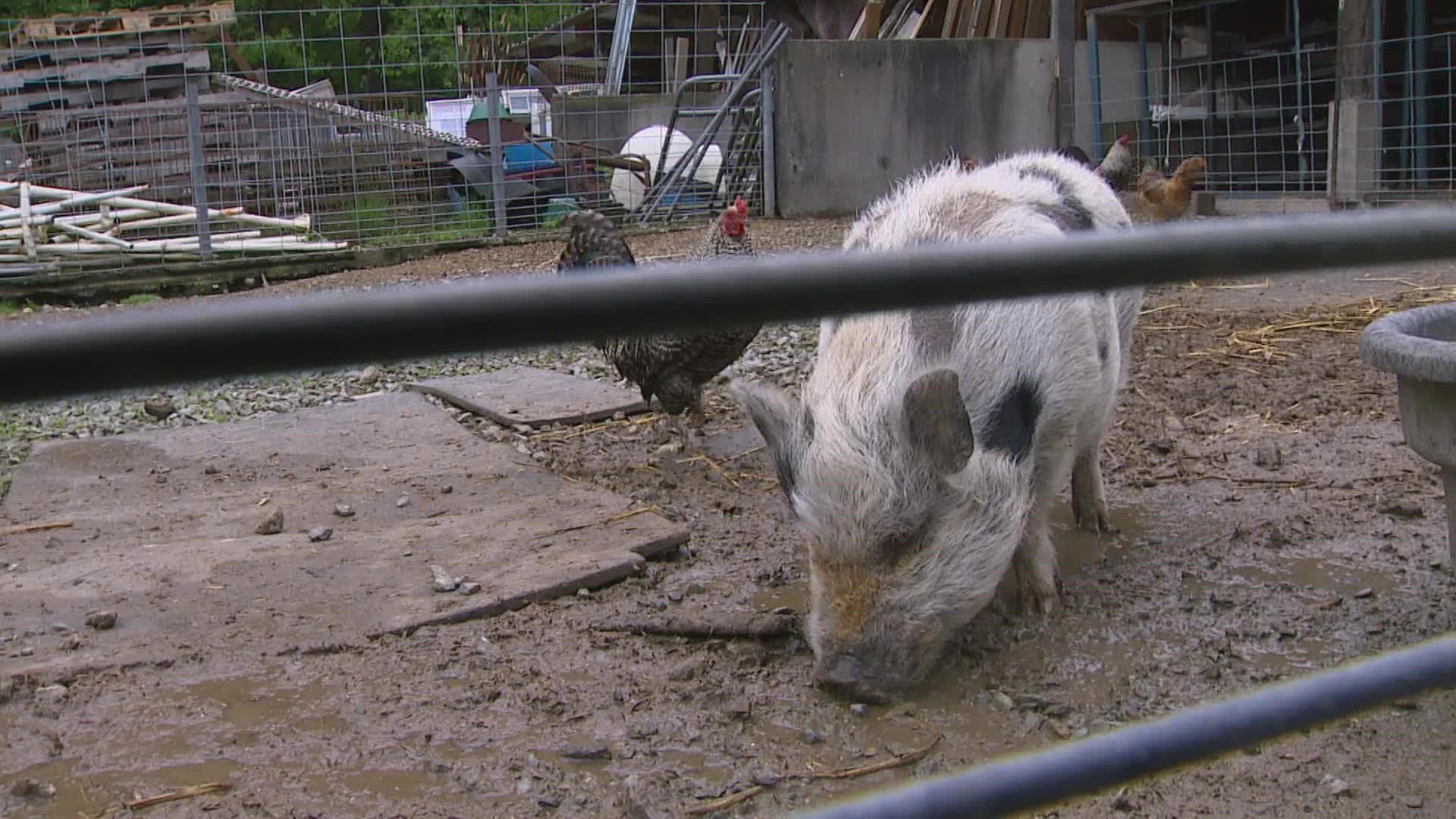MOUNT VERNON, Wash. — Everything from climate change to the war in Ukraine are causing problems for farms and animal rescues, forcing some tough choices for folks caring for vulnerable creatures.
Susan Trenary runs Farm Animal Rescue and Mentoring in Mount Vernon out of the goodness of her heart. It operates completely on donations - everyone is a volunteer.
But Susan is worried she might not be able to continue to care for all 80 of her animals.
"I'm scared," she said. "We're having to turn away animals because I don't want to be a rescue that needs rescuing."
Susan usually spends about $5,000 a year on hay alone. She's now expecting the price to double or even triple in the coming months. She said local hay is almost impossible to find, so she's forced to buy a more expensive kind from eastern Washington.
Bags of feed have gone up $10 each since December.
The situation is forcing Susan's own family to reexamine what they eat.
"We've already limited our groceries. We budget more, now. We do better planning of meals. We're growing more of our own food that will also be used for the animals," she said.
The West's ongoing drought combined with worsening wildfires have made hay scarce.
Last November's historic floods in Skagit and Whatcom counties wiped out feed crops, as well.
The war in Ukraine, which is a major global feed provider, has cut production drastically.
All this is happening as more animals are currently being surrendered to rescues like Susan's.
"We saw a lot of adoptions during COVID and now we're seeing a lot of animals being returned," said Susan. "It's sad."
Right now. she is sending out an appeal for donations of funds or feed.
"One-hundred percent goes directly to the animals," Susan said. "We don't keep a penny."
The organization is a registered 501 (c)(3) nonprofit.
"I will always find a way," Susan said. "There is absolutely no way the animals that we currently have will not be fed."

